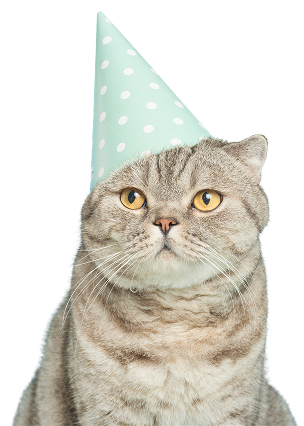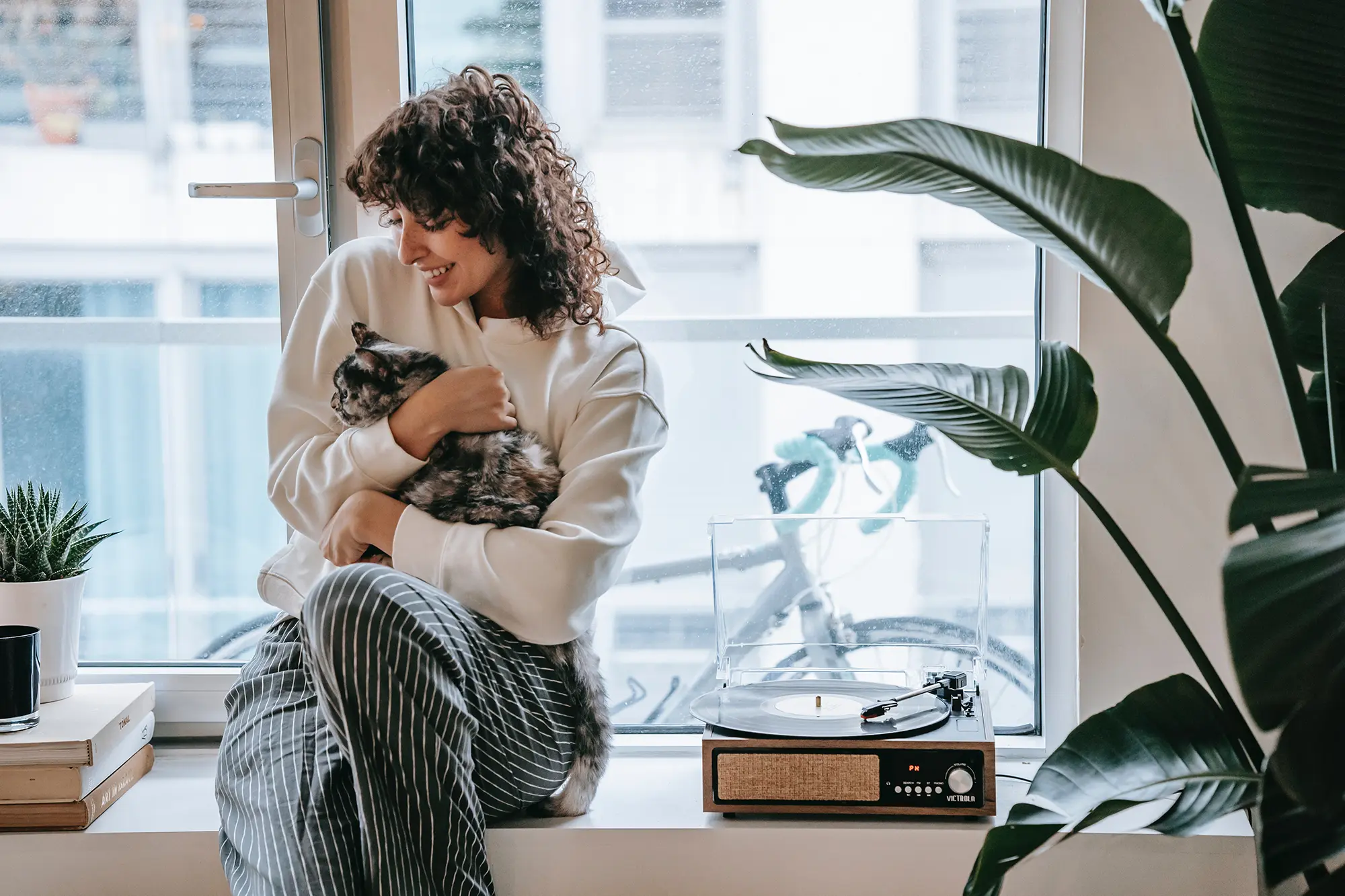5 reasons why your cat is pooping outside the litter box
Author: PawPots Team
 02 Feb 2024
02 Feb 2024
 7 min
7 min Cats are known for their cleanliness, making it puzzling when they start pooping outside the litter box. This behavior shows one certain thing: they are not at ease. It can be attributed to various factors, both physical and behavioral. It can serve as a barometer of your feline's health and offer valuable insights into their emotional state as well. Therefore, understanding the root cause behind your cat's aversion is crucial, and addressing the issue ensures a happier and healthier kitty.
Common Reasons for Cats Pooping Outside the Litter Box
Medical Problems
When a feline exhibits a change in its pooping behavior, it's essential to consider the possibility of underlying health issues. Urinary tract infections, constipation, diarrhea, and gastrointestinal disorders can cause discomfort and pain, making the waste boxes an undesirable place to defecate. They may associate the pain they feel with the litter container, leading them to seek alternative places to relieve themselves.
In some cases, senior kittens may suffer from age-related ailments like arthritis, which can make it difficult for them to enter and exit the bin comfortably. This discomfort may lead to accidents outside the box. Furthermore, diseases like diabetes, hyperthyroidism, or inflammatory bowel disease can result in changes in bowel habits.
Recognizing these medical issues early is crucial because timely diagnosis and treatment can alleviate their discomfort and help reestablish proper litter box usage. Therefore, any sudden or consistent changes in their defecating habits should prompt a visit to the veterinarian to rule out potential medical problems.
Stress & Anxiety
Due to their habitual nature, felines may become sensitive to changes in their surroundings, daily schedules, or social interactions. When they experience stress, it can manifest in various ways, including changes in their bathroom patterns. This anxiety may cause them to avoid the waste container and seek comfort in more secluded or familiar locations within the home.
Besides, inter-cat conflicts or territorial disputes can create tension and stress, leading them to defecate outside as a way to establish dominance or avoid confrontations. Providing a safe and consistent environment, offering interactive play, and using pheromone diffusers can help reduce their stress levels and encourage them to use the trash box appropriately.
Litter Box Cleanliness or Size
Felines are inherently clean animals, and they have specific preferences when it comes to their bathroom facilities. Firstly, cleanliness is crucial. They may refuse to use the pet toilet that is not regularly cleaned or maintained. Accumulated waste and odors can be off-putting, prompting them to seek alternative places for elimination.
Secondly, the size and type of the container matter. Cats come in various sizes, and the bin should be appropriately sized to accommodate them comfortably. Some may be deterred from using a box that feels too cramped. Covered waste bins, while favored by some owners for odor control, may make certain cats feel confined causing them to seek alternatives. It's crucial to provide a clean, appropriately sized, and well-maintained pet toilet to encourage proper use and prevent accidents outside of it.
Change of Environment
Kittens are renowned for having a deep commitment to their regular spaces and activities. When their environment is altered, it can lead to stress and behavioral changes. Shifting house or even introducing new family members can disrupt their sense of security and comfort. This upheaval can result in unease and confusion, leading them to seek substitute places to excrete.
Moreover, if a new pet is introduced and your kitty starts pooping outside the box, it could be an indication of your feline friend marking its territory. Neutering or spaying your cat will help decrease their desire to engage in territorial marking.
Additionally, changes in the location of their waste bin can also contribute to this behavior. They may become disoriented and fail to locate their container in the new setting or may not adapt well to a different style of box.
To address these issues, it's important to provide a stable and predictable environment for them during times of change. Gradual introductions to new settings and maintaining a consistent routine can help alleviate worry and encourage them to use the pet toilet appropriately in the new environment.
Attention-Seeking Behavior
Cats may turn to unusual ways to get attention since they are perceptive to their owner's interactions. Going beside the bin can be a dramatic approach for them to express their dissatisfaction or to get more attention and regard. They may use this conduct when they feel neglected, especially if there have been changes in their owner's schedule or lifestyle. They may believe that this attention-grabbing act will lead to increased interaction, petting, or feeding.
To address attention-seeking pooping, it's crucial to first rule out any underlying medical or stress-related issues. If the pet is physically healthy and not experiencing stress, owners should focus on providing regular playtime, affection, and enrichment activities to meet their feline companion's emotional needs. Reinforcing positive behaviors and ignoring attention-seeking antics can help redirect the cat's behavior back to the bin while maintaining a loving and balanced relationship.
Litter Box Maintenance Tips
· Scoop the bin every day to get rid of clumps and garbage. Kittens prefer clean boxes and are more likely to use them when they're well-maintained.
· Change the entire waste regularly, typically once a week or as recommended by the litter manufacturer. This prevents odors from becoming overwhelming.
· Choose a bin that your feline prefers and that works well for odor control. Some cats are sensitive to scented litters, so opt for unscented options if necessary.
· Maintain box depth of about two inches, which allows for proper digging and covering of waste.
· Clean the trash box with mild, unscented soap and water during litter changes to prevent the buildup of odors and bacteria.
· Ensure the pet toilet is located in a quiet, easily accessible, and private area. Keep it away from their water and food dishes.
· If you have multiple kitties, provide enough waste boxes (at least one per cat) to prevent territorial disputes and ensure each cat has access to a clean box.
How to Clean Cat Feces from Carpets, Beds, or Sofas?
Many people get apprehensive before getting a pet cat or dog that it will mess with their house's cleanliness. Well, keeping your house clean with pets around requires responsible and regular practices that you can master if you keep at it with just a pinch of patience.
If you happen to find your cat poop on your carpet, bed, or sofa, try and immediately treat the matter before the stains get harder to remove.
Firstly, scrape off the poop with preferably a wet paper towel. Follow this up by applying a pet stain remover to the affected area. If you don’t have one, you can prepare one of your own by mixing two cups of water with a cup of white distilled vinegar. Put the mixture in a spray bottle, spritz it over the area, and dab with a paper towel. If the stain is too hard, you can even add a tablespoon of baking soda to the mixture to increase its efficacy.
Vinegar is not only an effective agent in removing stains but will also help in neutralizing the odor. However, if the stain is overbearing, you can mix two tablespoons of dishwater with five tablespoons of hydrogen peroxide and rub it over the affected area. Follow this up by sanitizing the area to avoid any chances of contamination.
Summing Up
A cat's litter box habits are not to be underestimated in the realm of pet care. Whether due to medical concerns, stress, or issues related to cleanliness and environment, these behaviors hold significant implications for both the kitten's well-being and the quality of the human-pet relationship.
Recognizing the underlying causes of fecal discharge issues and taking appropriate action is vital. Regular maintenance and suitable conditions can make a substantial difference in a cat's pooping behavior.

Give Back The Love
Show your love to your pets with our high-quality, delicious and healthy meals! Show your love to your pets with our high-
quality, delicious and
healthy meals!






